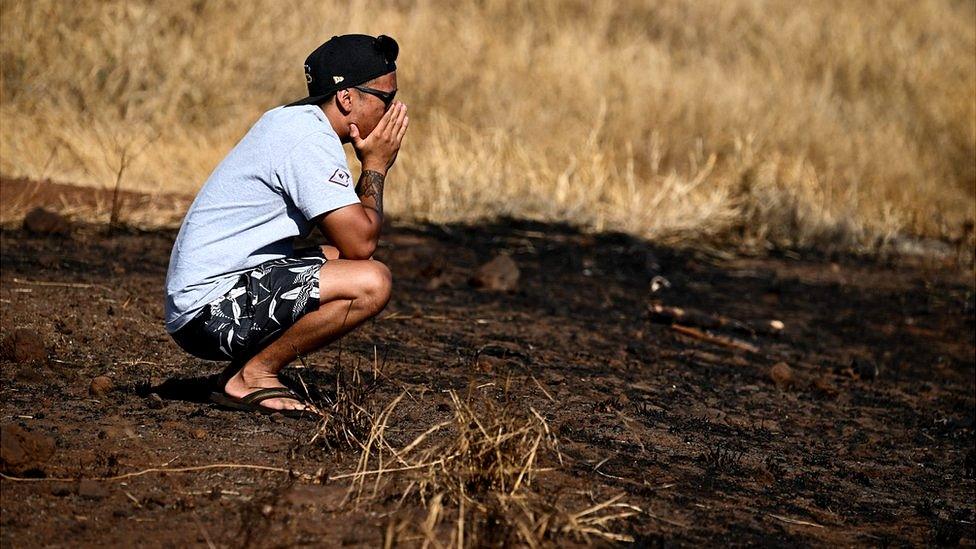Storm Hilary hits California after lashing Mexico
- Published
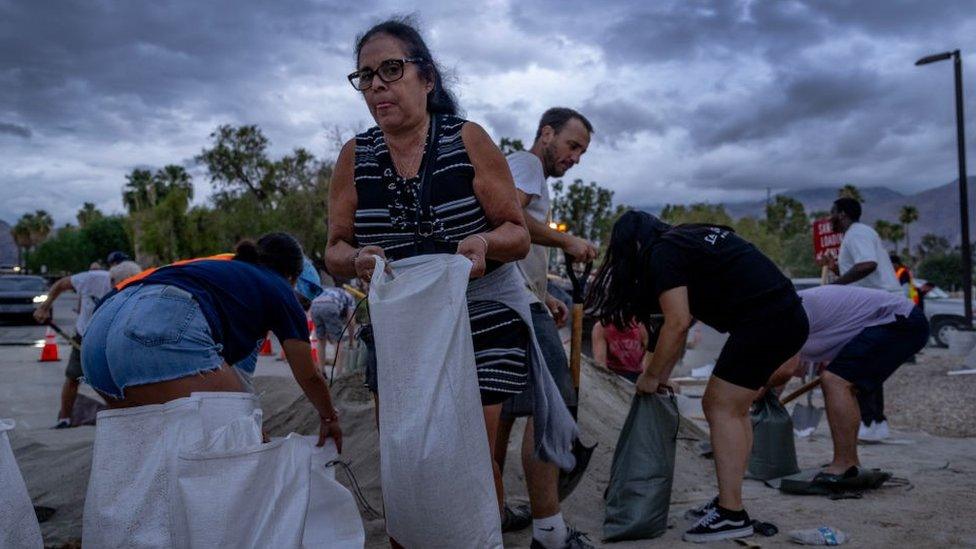
People have been preparing for stormy weather in Palm Springs, California
Tropical Storm Hilary hit the US state of California on Sunday night, bringing fierce winds and flooding to the Pacific coast.
Now headed north to Nevada, the storm passed over Southern California, with record rainfall and flash flooding predicted in the Death Valley National Park.
It moved across the border from Mexico, where the Baja California peninsula saw winds of 70 mph (119km/h).
In Mexico, a man died in a flash flood.
A number of houses are now submerged in the town of Santa Rosalia, Mexico, while some residents in California have been forced to evacuate.
Schools have also had to close for Monday, including Los Angeles Unified School District, the second largest in the country.
The last time a tropical storm made landfall in Southern California was in Long Beach in 1939.
Hilary is set to weaken as it moves north, but forecasters warn it could still bring dangerous and catastrophic flooding to the state.
"Areas that normally do not experience flash flooding will flood," the National Weather Service said. "Lives and property are in great danger through Monday."
Experts say recent abnormal weather events that have plagued the US - and several areas across the globe - have been influenced by human-caused climate change, external.
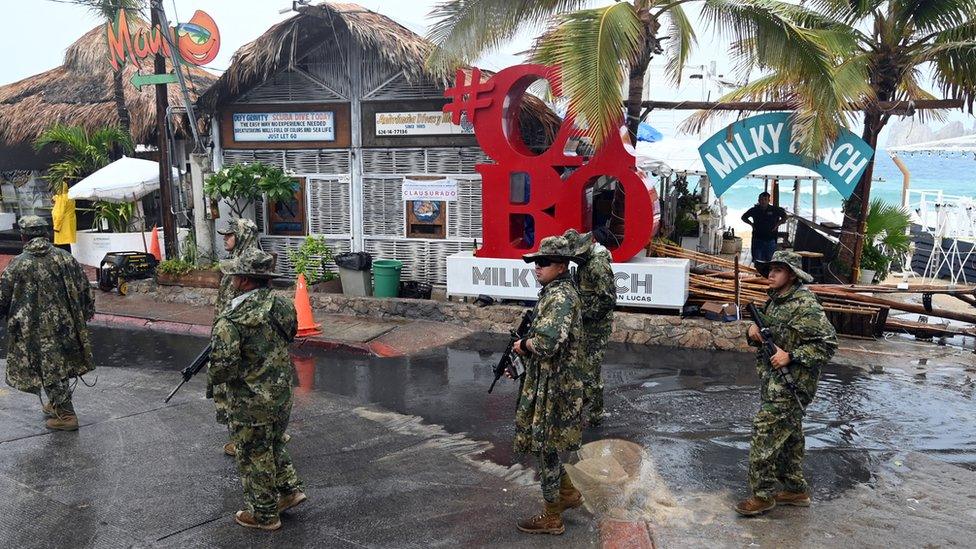
In Mexico, 18,000 soldiers have been put on standby to assist in rescue efforts
The storm made landfall in the northern part of Mexico's Baja California peninsula at 11:00 local time (18:00 GMT) on Sunday, the US National Hurricane Center (NHC) said.
In Mexico, 18,000 soldiers were placed on standby earlier to assist in rescue efforts.
The man who died in the state of Baja California Sur was in a car with his wife and children, local officials said - his family survived.
In Santa Rosalia, on the state's eastern coast, dramatic videos have emerged showing powerful torrents of muddy water cascading down the main street.
Across California, residents have been putting out sandbags, including in Long Beach and Palm Springs. About 57,000 people in the state are without power, according to poweroutage.us.
Eugenie Adler, a resident of Long Beach, told Reuters: "Flooding where people lose some property is one thing, but flooding where people die is another. And I'm afraid people might die."
Los Angeles Mayor Karen Bass called it "an unprecedented weather event".
"But Los Angeles has deep experience responding to crises whether it be wildfire or earthquakes," she said. "The city is prepared."
Nearly 26 million people in the south-western US are under flood watch.
Hilary was downgraded to a Category 1 storm after weakening on Saturday, but officials kept up their warnings.
Tropical-storm-force winds extend outward up to 240 miles (390 km) from its centre, according to the NHC.
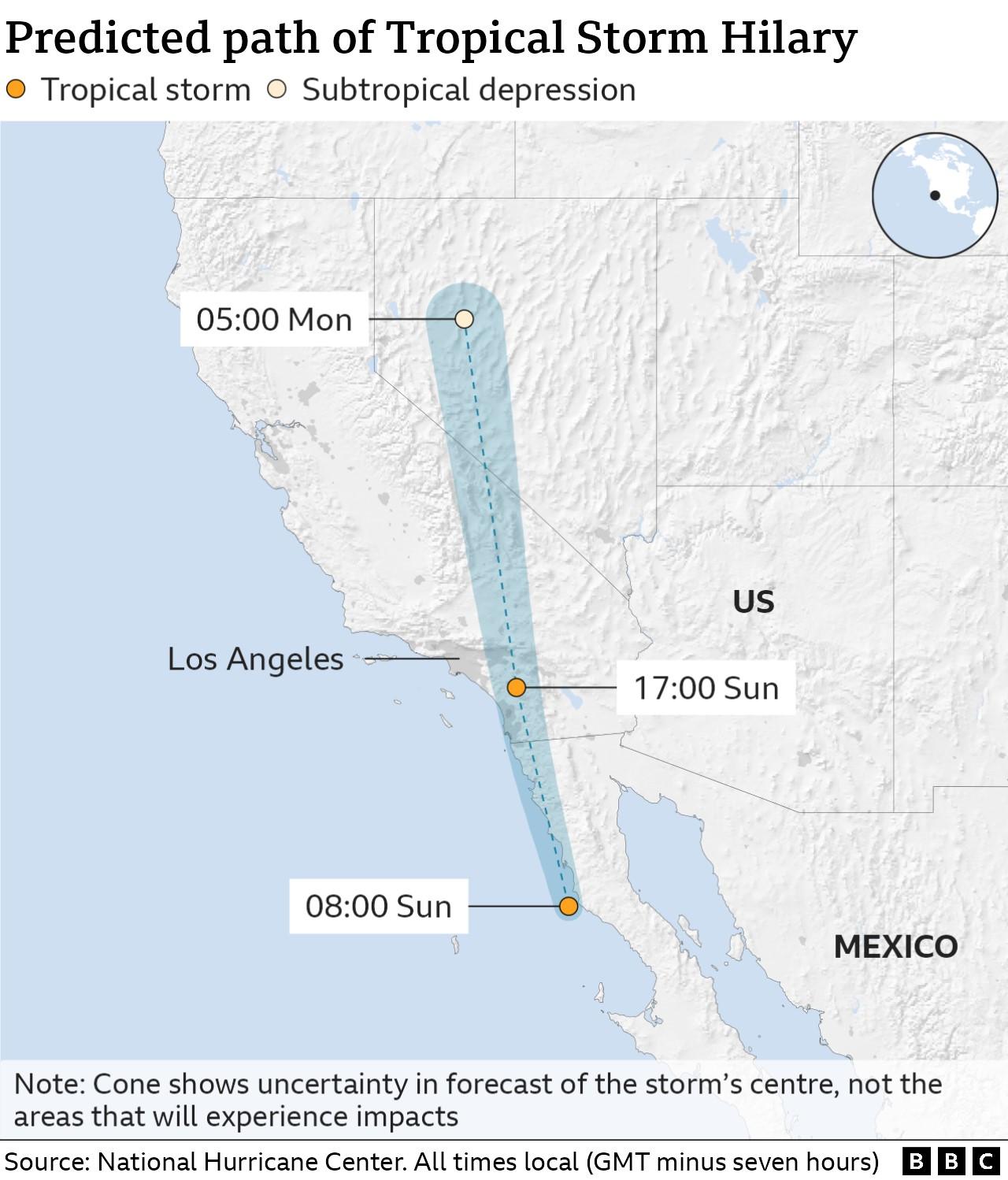
Nancy Ward, director of the California Governor's Office of Emergency Services, said Hilary could be one of the worst storms to hit the state in more than a decade.
"Make no mistake," she told a news conference on Saturday. "This is a very, very dangerous and significant storm."
Up to 10 in (25cm) of rain is expected in parts of Mexico, California and Nevada, according to the NHC. On Sunday, rain began to fall in Southern California deserts.
As the storm approached, Major League Baseball rescheduled three games in southern California, while SpaceX postponed the launch of a rocket from its base on the central California coast until at least Monday.
The National Park Service also closed Joshua Tree National Park and Mojave National Preserve, both in California, to prevent visitors from being stranded in the event of flooding.
Extreme weather has recently caused chaos across North America.
In the wake of the hottest month on record, July 2023, according to Nasa, the deadliest wildfire in modern US history spread across Hawaii on 8 August, killing at least 111 people.
The damage was escalated by hurricane winds passing through the area.
And in Canada, hundreds of wildfires are raging in the province of British Columbia, scorching homes and forcing tens of thousands of people to evacuate.
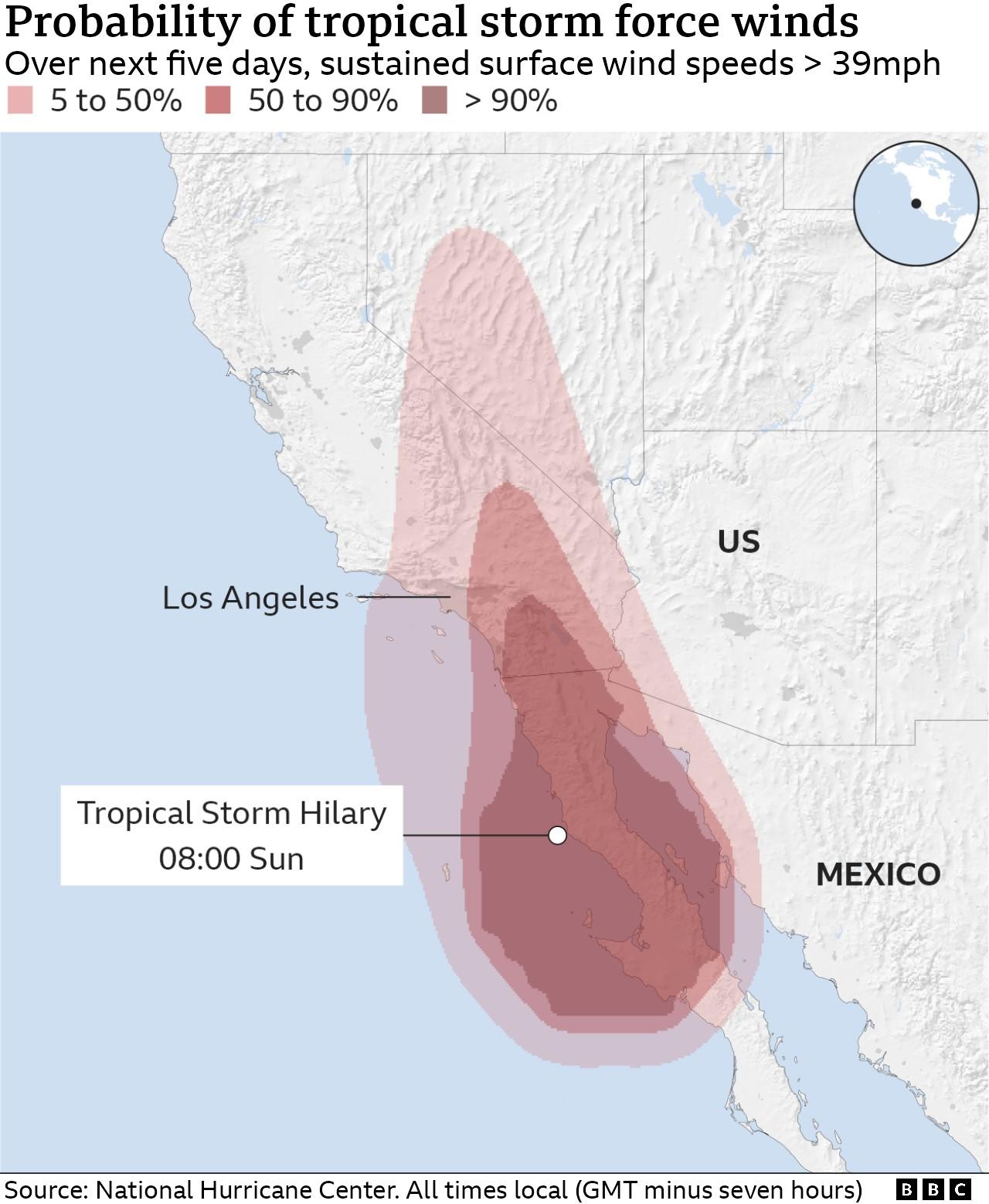

How have you been affected by the storms? If it's safe for you to do so, you can get in touch by emailing haveyoursay@bbc.co.uk, external.
Please include a contact number if you are willing to speak to a BBC journalist. You can also get in touch in the following ways:
WhatsApp: +44 7756 165803
Tweet: @BBC_HaveYourSay, external
Please read our terms & conditions and privacy policy
If you are reading this page and can't see the form you will need to visit the mobile version of the BBC website to submit your question or comment or you can email us at HaveYourSay@bbc.co.uk, external. Please include your name, age and location with any submission.
Related topics
- Published19 August 2023
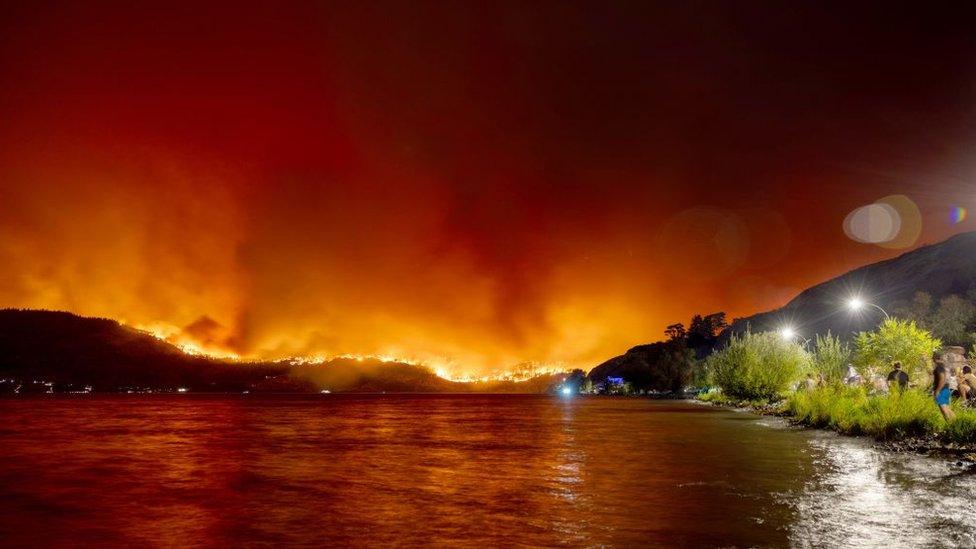
- Published18 August 2023
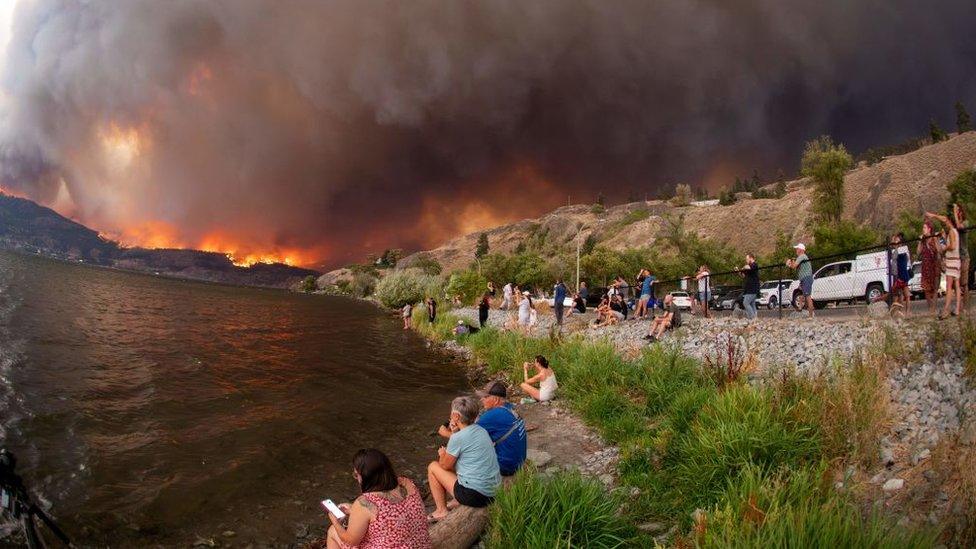
- Published18 August 2023
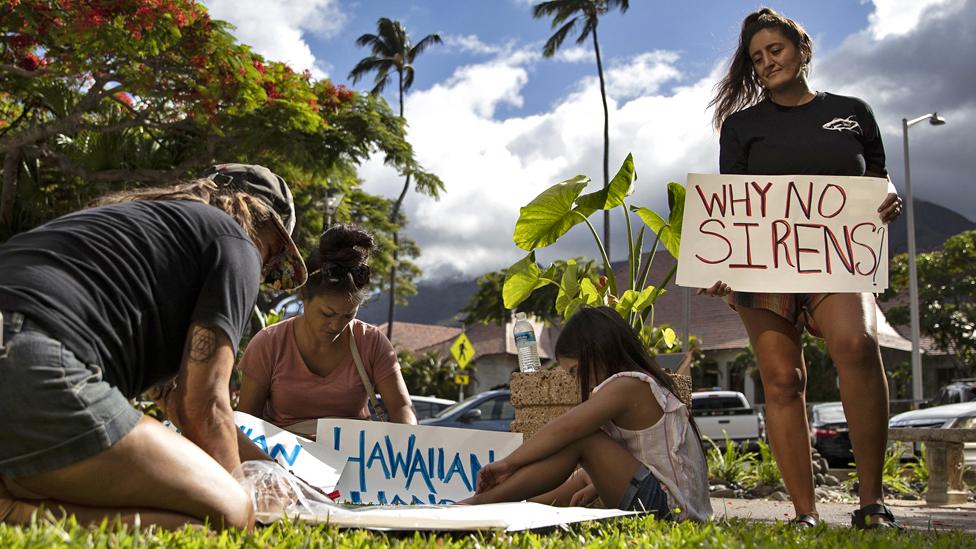
- Published14 August 2023
